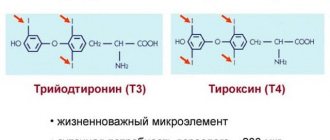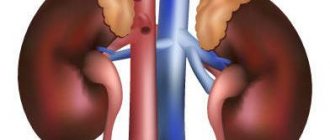Oxytocin, or rather its solution, is often used to terminate pregnancy because it can enhance the contraction of the smooth muscles of the uterus and increase its excitability. The use of the drug is necessary, for example, to terminate a post-term pregnancy, to stimulate labor if the water breaks prematurely. It is necessary to use it for primary or secondary labor weakness. It is also used for abortions, that is, during termination of pregnancy not in the early stages of pregnancy, but in later stages of pregnancy. It is used not only to terminate pregnancy, but also in the postpartum period, for example, when excessive stagnation of milk occurs, if there is a noticeable increase in body weight, premenstrual syndromes of increased pain occur, and so on.
Application
To induce labor and then increase uterine contractility, it is necessary to use oxytocin in a hospital, and it is imperative that medical supervision be carried out. The injection is given by the doctor who is quite familiar with the drug and its side effects, as well as with the patient and the characteristics of her health and the course of her pregnancy. The injection is given intravenously, but can also be done intramuscularly. It is done intramuscularly either once or as a drip (a dropper will help here).
It is necessary not only to give an injection, but to constantly monitor uterine contractions, monitor cardiac activity, blood pressure, and so on. There should always be a medical specialist nearby who can take the necessary measures if an unpredictable situation arises.
When oxytocin is used correctly and adequately during pregnancy, it provokes uterine contractions that are similar to normal labor. If you overdo it with its dosage, then not only the woman in labor will be at risk, but also her fetus. It is also important to consider whether the woman in labor has hypersensitivity to the drug. Then such problems can appear even when everything is applied in an absolutely correct way. Then there can be any effect, even lethal, both for the mother and for the fetus, both during childbirth and before/after.
Instructions
Oxytocin is a hormonal drug that is extracted from the brain cells of cattle. To stop uterine bleeding, it is created synthetically. Effective for hormonal imbalances, when a woman’s body itself is not able to produce enough hormones for the normal functioning of the reproductive system. It also affects the nervous system, endocrine glands, and helps control metabolism.
Oxytocin is released in the form of a solution intended for intravenous and intramuscular administration. Sometimes, according to indications, the drug can be injected directly into the wall of the uterus. Intramuscular Oxytocin can be used to prevent uterine bleeding, which can occur in the postoperative period or in case of hormonal imbalance.
In most cases, Oxytocin is used when uterine hypertonicity is observed. Its main purpose is to stimulate the release of the follicle during bleeding. Oxytocin is a synthetic hormone. It has a vasoconstrictor effect, which leads to increased uterine tone. When the drug is administered, the uterus contracts.
Important information: Why does the nipple bleed when pressed and what to do when the mammary glands bleed
During labor, the drug accelerates the birth process. After the baby is delivered, it can be used to speed up the process of uterine contractions, which will help deliver the placenta faster, as well as to stop bleeding from the uterus. Only a doctor who managed the pregnancy and knows all the characteristics of the woman’s body can use the drug during childbirth.
Contraindications
In some situations, oxytocin cannot be used in principle, because otherwise the result may be quite negative:
- disproportionate size of the pelvis and fetus (which is generally dangerous during childbirth);
- increased sensitivity to the substance;
- insufficiently favorable placement of the fetus;
- the need for surgical intervention before/after termination of pregnancy;
- hypertonicity of the uterus;
- situations in which vaginal birth is contraindicated, as well as the possibility of interrupting it;
- severe toxemia and/or insufficient labor contractility during childbirth.
The main action of the hormone
The site of oxytocin synthesis is the paraventricular nuclei of the hypothalamus. From these, it passes through the funnel into the posterior lobe of the pituitary gland for further release into the blood. The main biological role of the hormone is to contract the cells surrounding the mammary ducts. As a result, milk, which was formed under the influence of prolactin, enters the nipple.
During the period of breastfeeding, the mother experiences the most active production of oxytocin by the neurons of the hypothalamus and enters it in pulsating portions into the pituitary gland.
We recommend reading the article about hormones of the pituitary gland. From it you will learn about the main characteristics of the pituitary gland, the physical significance and functions of the pituitary lobes.
And here is more information about the structure of the hypothalamus.
Side effects
It is necessary to understand that the drug can cause a number of side effects both in women giving birth during an abortion and in the fetus. The impact is carried out at the level of several systems at once. Such problems arise extremely rarely, but if they do occur, then every effort must be made promptly to ensure that they are eliminated. Let's consider the negative effects in a woman in labor that correspond to the use of the drug.
- Heart and blood vessels. Sometimes, from large doses of the drug during or before childbirth, arrhythmia, arterial hypertension, reflex tachycardia, bradycardia and a number of other problems can occur.
- Reproductive system. Excessively large doses may cause spasms, increased bleeding in the postpartum period, and afibrinogenemia and thrombocytopenia may develop. In extremely rare cases, a pelvic hematoma may occur.
- Digestive system. Nausea and vomiting may occur.
- Nervous system. In some cases, headaches are possible.
- Leather. Rashes are sometimes associated with the use of the drug.
- The immune system. Anaphylactic reactions, other allergic reactions.
A fetus or newborn from oxytocin may experience symptoms of jaundice and may experience retinal hemorrhage. In extremely rare cases, tachycardia, sinus bradycardia, arrhythmia, and damage to the brain and central nervous system may occur. To prevent this from happening, everything must be very well controlled by a doctor, who can quickly take action at the first changes.
When it can and cannot be used
To stop uterine bleeding in young, non-pregnant women, Oxytocin can also be prescribed for use at home. This is done under the strict supervision of the attending physician. He determines the required dosage and duration of treatment in accordance with the severity of the situation.
Direct indications for the use of the drug are:
- risk of bleeding due to decreased uterine tone;
- complicated pregnancy and childbirth;
- stopping uterine bleeding;
- poor production of breast milk in the first days after birth;
- heavy and constant bleeding from the uterus.
The drug should be administered intravenously in a hospital setting. Since Oxytocin has a lot of side effects, during the drip the doctor must monitor the patient’s condition in order to quickly provide her with the necessary help. The doctor must know in what percentage and what can happen if complications arise.
Oxytocin as a hemostatic agent is contraindicated in people with:
- atherosclerosis;
- risk of developing myocardial infarction;
- diseases of the genitourinary system;
- hypertension;
- diseases of the coronary vessels;
- heart pathologies;
- severe renal failure.
Do not use Oxytocin in the presence of carcinomas, infectious and inflammatory processes in the uterus.
Important information: How to identify internal bleeding in the abdominal cavity in women and what to do (first aid) to stop
Since the administration of Oxytocin stimulates the contractility of all smooth muscles, all chronic conditions can worsen and lead to serious consequences.
Self-medication can greatly aggravate the situation. It is impossible to accurately determine the percentage of probability that a patient may experience large amounts of blood loss, development of anaphylactic reactions, as well as nausea, vomiting, tachycardia and suffocation. Improper use of Oxytocin can also cause bleeding.
Overdose
With an overdose during and before childbirth, various negative effects may also occur, which occur earlier or later depending on how sensitive the uterus is to oxytocin. The general sensitivity of the body to the drug does not greatly affect the effects of overdose and the effect of termination of pregnancy.
From an overdose, when the dosage of oxytocin, which is administered intramuscularly, is too high, hyperstimulation can occur, leading to excessively long contractions or very rapid labor, a negative form of termination of pregnancy. This is fraught with rupture of the cervix or uterine body, damage to the vagina, bleeding, and problems with the fetal heart. In extreme cases, oxytocin can even cause fetal death.
In case of overdose, it is necessary to carry out surgical treatment, which consists in the fact that the infusion of the drug is promptly canceled, any dosage is not allowed, the intake of fluids and diuretics is limited, convulsions are stopped with barbiturates, the electrolyte balance is corrected, the patient is provided with the most careful care, carried out by qualified specialists.
reference Information
The production of the hormone Oxytocin affects the formation of relationships between the sexes, the formation of attachment between mother and child, and a person’s adaptation in society.
Women produce the hormone oxytocin in greater quantities than men. In essence, the hormone is a protein consisting of 9 amino acids. It belongs to the neuropeptides, carries out humoral regulation and promotes signal transmission between neurons.
The amount of oxytocin changes throughout the day. At night its concentration is higher than during the daytime.
Scientists have proven that shaking hands, communicating with a loved one, relaxing in good company increases its level in the blood.
Release and storage
Oxytocin is available only by prescription. According to the instructions for use, it should be stored in a place where there is no light at a temperature of 8 to 15 degrees Celsius.
Republished by Blog Post Promoter
WE ADVISE YOU TO READ:
Tripod for IVs at home
Previous article
Quantiferon test - features of proper research
Next article
Hormone deficiency in women
Pregnant women are primarily affected by oxytocin deficiency. During childbirth, problems may arise such as:
- disruption of the birth process;
- insufficient uterine contractions to expel the fetus.
After childbirth, with oxytocin deficiency, the following is observed:
- poor uterine tone;
- difficulty in removing lochia;
- poor secretion of breast milk;
- state of depression;
- attachment to the child is not formed.
Also, a lack of the hormone in men and women causes:
- nervous conditions;
- lack of deep feelings during sexual contacts;
- the formation of distrust of the partner and a feeling of neglect of him;
- indifference to offspring;
- in personal relationships it becomes difficult to build trust in a partner and have long-term relationships with the opposite sex;
- it is difficult to find contact with others.
The causes of hormone deficiency may include:
- disproportionate synthesis in the hypothalamus;
- poor secretion from the pituitary gland, where it is stored;
- the influence of progesterone, the level of which increases after conception. This is necessary in order to maintain the pregnancy without allowing the uterus to contract.
It is necessary to increase oxytocin by stimulating it in the blood.
Despite all the positive aspects, oxytocin can also have negative effects:
- water retention in the body;
- decrease in potassium in the blood;
- increases the feeling of disappointment when parting with loved ones;
- is able to encourage a person to do bad things for the sake of his loved ones, without the person thinking that his actions are wrong;
- Hormone deficiency causes a person to feel aggression and irritability, which spills over onto loved ones.
The causes of hormone deficiency may be:
- menstrual pause;
- constant stressful situations;
- dysfunction of the thyroid gland;
- AIDS and HIV disease;
- autism;
- Parkinson's disease;
- brain infection;
- taking drugs.
Where does oxytocin come from?
Let's talk in more detail about what oxytocin is. It is produced in the brain by the hypothalamus and redirected to the pituitary gland, where it accumulates. From there the hormone enters the person’s blood. Why oxytocin is produced when meeting one person and behaves passively when meeting another has not yet been found out. The mechanism of action of oxytocin is explained by chemical reactions at the cellular level. At present, the details of its effect on the uterus of a woman giving birth have been studied.
Scientists have found that the production of this neurotransmitter increases during physical contact with a pleasant person, during a handshake, during hugs, and kisses. If a woman or man is stressed, the amount of oxytocin in the blood decreases as adrenaline is produced, which suppresses the happiness hormone.
Increase in the hormone oxytocin
To conduct research, the hormone is dripped into the nose or sprayed. This use has a short-term effect and is not used to increase its concentration in the blood. The molecule of this hormone is short-lived. Her lifespan is only three minutes.
How to increase the concentration of the hormone in the blood is discussed below:
- Administration of Oxytocin intravenously or intramuscularly , sometimes under the skin. The drug in tablet form is like a hormone analogue. This drug is capable of: enhancing labor;
- restore the tone of the uterus and return it to its original size;
- remove suckers from the body after childbirth;
- terminate pregnancy in the early stages.
- touching between loved ones;
Oxytocin therapy is indicated for people with emotional and mental disorders. All methods strengthen relationships between people and have a beneficial effect on love relationships. That's why they say that oxytocin is the love hormone.
To prevent hormone deficiency, you need to reconsider your lifestyle. If a person is calm and enjoys life, then there will be no problems with the concentration of the hormone.
Love couples should spend more time alone, hug and kiss more. It’s good to take walks holding hands, to give pleasant things and surprises to your loved ones. It is important to understand that if there are no feelings, then nothing will help.
How to increase oxytocin production
If you cannot produce enough of this iron hormone, experts recommend using several effective ways to solve the problem.
By regularly giving a massage to your loved one, you can give him real pleasure, and this promotes the production of oxytocin. In this case, bodily interaction is characterized by pleasant sensations, rubbing, stroking, which can not only affect the emergence of feelings of affection, but also provoke a surge in sexual desire.
It is recommended to hug your loved ones every day. Experts advise lovers to hug, touch each other, kiss, say nice words, and have heart-to-heart conversations more often. There is no need to be afraid to show your feelings; your chosen one will be pleased to know what feelings he or she evokes.
Sexual intercourse promotes the production of oxytocin. People who are sexually active will not have problems with the production of this hormone. They are used to giving love and warmth to their significant other and trust her completely. Relationships only become stronger from this.
As practice shows, physical activity will help solve the problem. Exercising, playing with friends outdoors, and walking will also help produce oxytocin , the love hormone, in the right amount. The main thing is to spend time with pleasure, train in a great mood, and even better – play sports in the company of loved ones.
Oxytocin is a pituitary hormone that plays a huge role in the human body and controls many processes. If there is a deficiency, it can be replenished with the help of special preparations. By taking them, it will be possible to normalize many processes and improve a person’s well-being. Improvements are evident both physically and psychologically.












